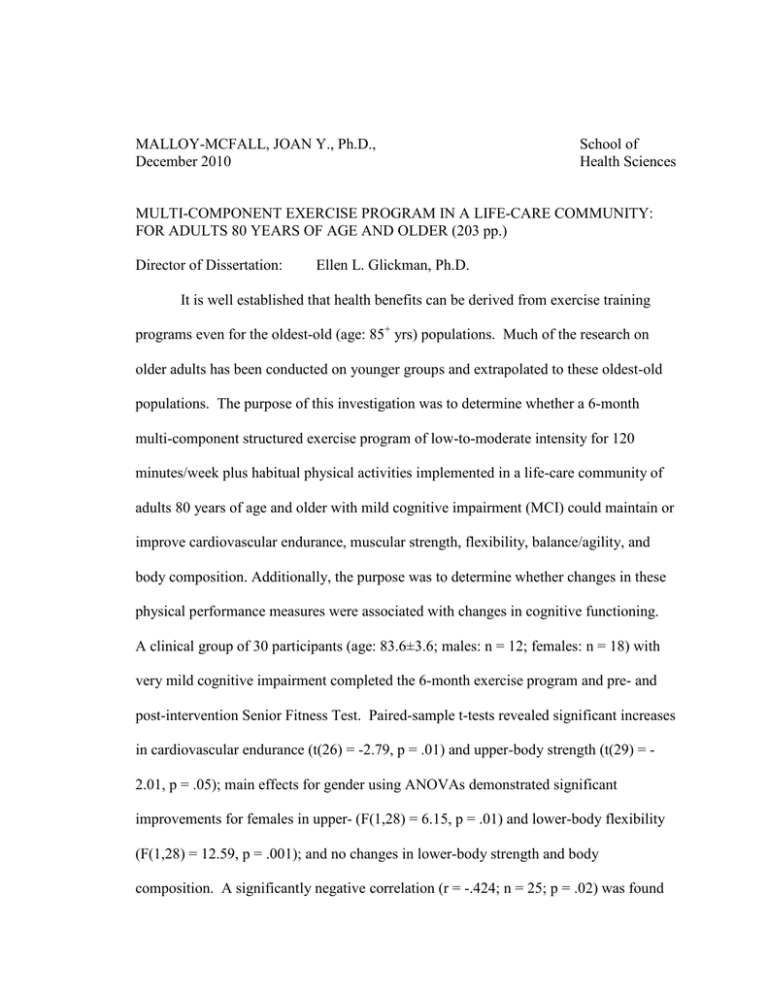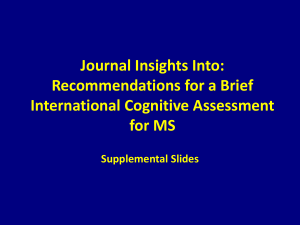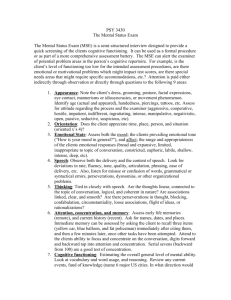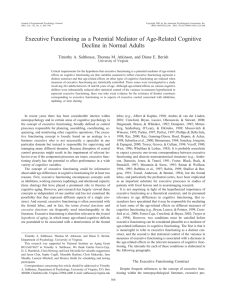MALLOY-MCFALL, JOAN Y., Ph.D., School of December 2010
advertisement

MALLOY-MCFALL, JOAN Y., Ph.D., December 2010 School of Health Sciences MULTI-COMPONENT EXERCISE PROGRAM IN A LIFE-CARE COMMUNITY: FOR ADULTS 80 YEARS OF AGE AND OLDER (203 pp.) Director of Dissertation: Ellen L. Glickman, Ph.D. It is well established that health benefits can be derived from exercise training programs even for the oldest-old (age: 85+ yrs) populations. Much of the research on older adults has been conducted on younger groups and extrapolated to these oldest-old populations. The purpose of this investigation was to determine whether a 6-month multi-component structured exercise program of low-to-moderate intensity for 120 minutes/week plus habitual physical activities implemented in a life-care community of adults 80 years of age and older with mild cognitive impairment (MCI) could maintain or improve cardiovascular endurance, muscular strength, flexibility, balance/agility, and body composition. Additionally, the purpose was to determine whether changes in these physical performance measures were associated with changes in cognitive functioning. A clinical group of 30 participants (age: 83.6±3.6; males: n = 12; females: n = 18) with very mild cognitive impairment completed the 6-month exercise program and pre- and post-intervention Senior Fitness Test. Paired-sample t-tests revealed significant increases in cardiovascular endurance (t(26) = -2.79, p = .01) and upper-body strength (t(29) = 2.01, p = .05); main effects for gender using ANOVAs demonstrated significant improvements for females in upper- (F(1,28) = 6.15, p = .01) and lower-body flexibility (F(1,28) = 12.59, p = .001); and no changes in lower-body strength and body composition. A significantly negative correlation (r = -.424; n = 25; p = .02) was found between changes in cardiovascular endurance and cognitive functioning. Further analysis revealed this significantly negative correlation was evidenced for individuals with, but not for those without, 2 cardiovascular disease (CVD) risk factors. Although midlife CVD risk factors have previously been associated with declines in cognitive functioning, the effect of these risk factors is unclear in this study population. The results from this investigation suggest that adults in their ninth decade of life with very mild cognitive impairment can maintain or improve physical performance measures with a structured multi-component exercise program of low-to-moderate intensity. However, despite these improvements cognitive functioning continued to decline. These findings encourage further research of the relationship between physical performance measures and cognitive performance in this population.






